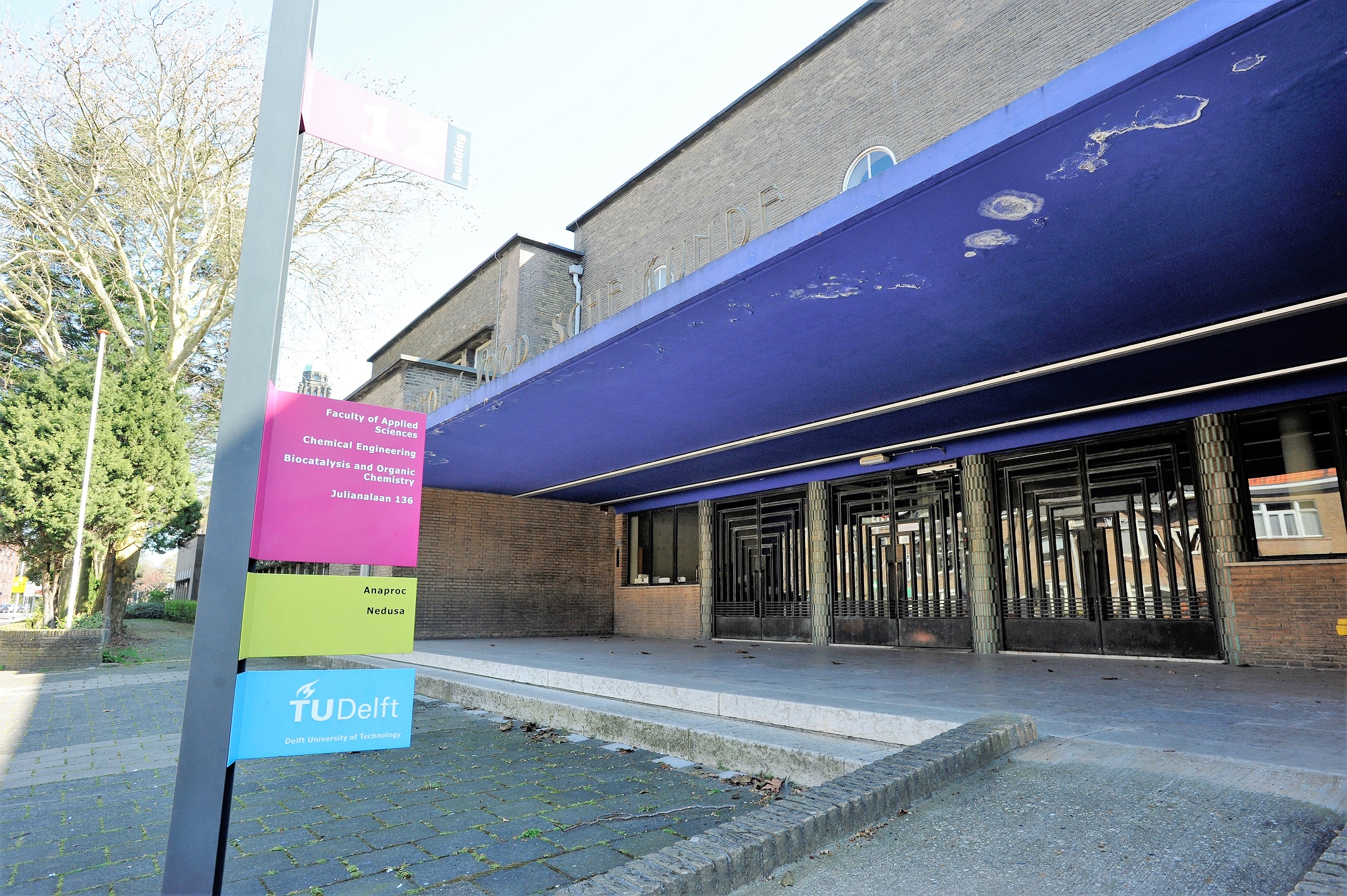TU Delft has sold ‘Gele Scheikunde’, a three hectare site on the edge of campus. How does this fit the campus strategy?
(Photo: Marjolein van der Veldt)
About 300 homes will be built between the Julianalaan, the Prins Bernhardlaan and the Michiel de Ruyterweg on TU Delft property. They will be a combination of homes for purchase and rent and social housing. The buyers of the land are the property developers Amvest and Kondor Wessels Vastgoed. They will make their plans for the three hectare plot known later this year.
TU Delft sold the Kramerslab, that was part of the Gele Scheikunde, in April 2019. The Municipality of Delft paid the symbolic amount of EUR 1 for it. The Municipal Executive saw the area as the only option to locate an international secondary school. The Ministry of Education approved the Stanislas College application in January 2019. The school has already opened at a temporary location on the Colijnlaan.
Getting rid of the former chemistry complex is part of TU Delft’s recently established campus strategy. The idea is that the campus gradually moves away from the centre and towards TU Midden and TU Noord.
UPDATE 2-10-2020: A TU spokesperson states that the university is currently not making any statements about the amount of the sale.
Do you have a question or comment about this article?
m.vanderveldt@tudelft.nl


Comments are closed.